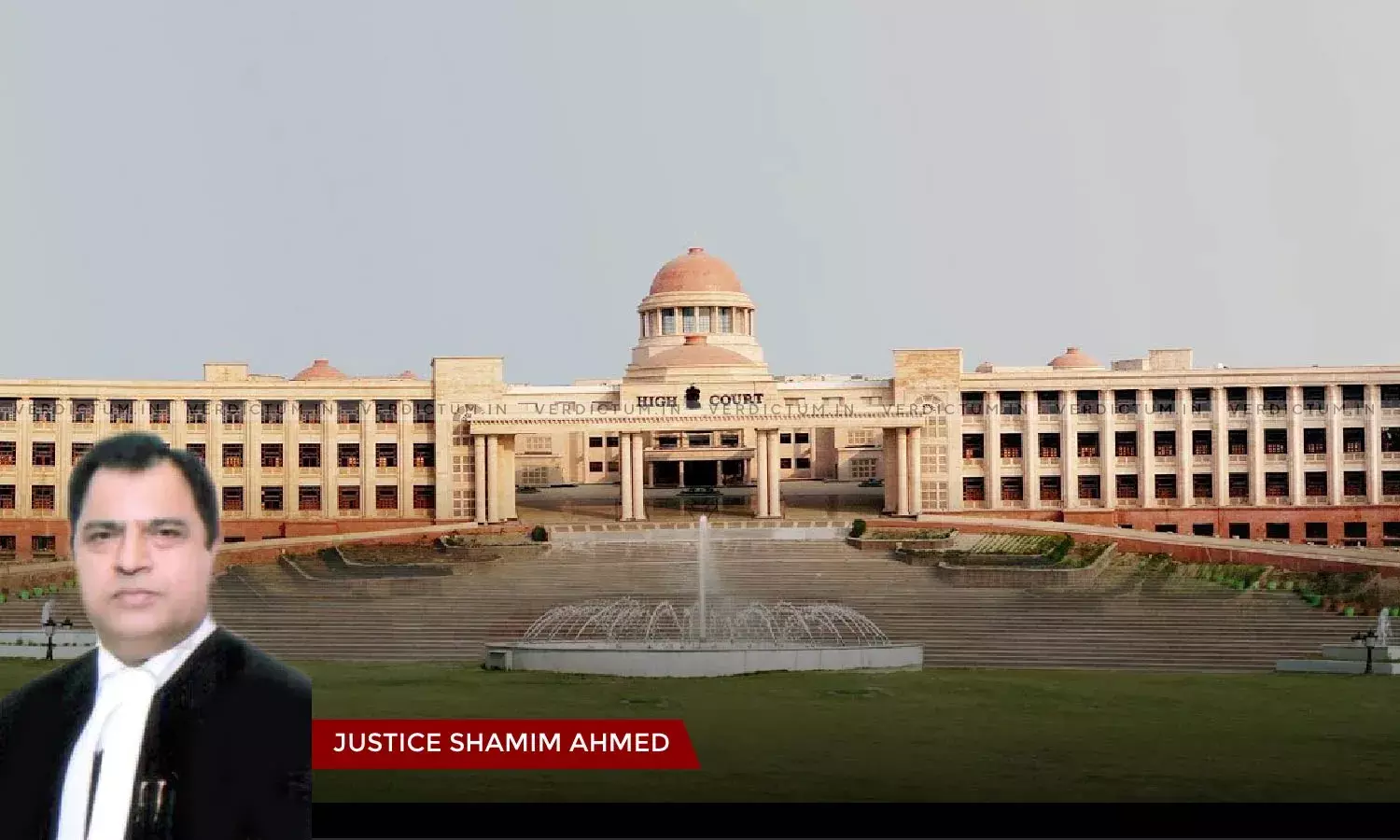Economic Position Or Material Advantages Cannot Be Sole Determining Factors In Child Custody Cases- Observes Allahabad HC

The Allahabad High Court Bench at Lucknow comprising of Justice Shamim Ahmed has held that when a question arises before a court pertaining to the custody of minor child, it cannot be decided on the basis of the economic circumstances of the contending party. Further, it was held that "The matter will not be determined solely on the basis of the physical comfort and material advantages that may be available in the home of one contender or the other. It is further held that the welfare of the child must be decided on a consideration including the general psychological, spiritual and emotional welfare of the child".
Counsel Manushresth Misra and Counsel Sushil Kumar Singh appeared for the petitioner, while GA Manoj Kumar Misra appeared for the respondent.
In this case, the parties had entered into an amicable divorce. As per the Matrimonial Settlement Agreement, days were fixed for the physical custody of the children. However, the father took the children away from the USA and to India, without obtaining the consent of the mother for the permanent relocation of the children. Eventually, he also did not allow interactions between the children and their mother.
The mother filed a habeas corpus petition, seeking custody of the children.
On hearing the parties, the Court observed that "Whenever a question arises before a court pertaining to the custody of the minor child, the matter is to be decided not on consideration of the legal rights of the parties but on the sole and predominant criterion of what would best serve the interest and welfare of the child. The primary object of a Habeas Corpus petition, as applied to minor children, is to determine in whose custody the best interests of the child will probably be advanced. Further the question of custody cannot be determined by weighing the economic circumstances of the contending parties. The matter will not be determined solely on the basis of the physical comfort and material advantages that may be available in the home of one contender or the other. It is further held that the welfare of the child must be decided on a consideration including the general psychological, spiritual and emotional welfare of the child. While resolving the disputes between the rival claimants for the custody of a child, the aim of the Court must be to choose the course which will best provide for the healthy growth, development and education of the child so that he or she will be equipped to face the problems of life as a mature adult".
Analysing a catena of judgments, the Court observed that "while deciding the matter of custody of children, primary and paramount consideration is welfare of the children so demands then technical objections cannot come in the way. However, while deciding the welfare of the children it is not the view of one spouse alone which has to be taken into consideration. The courts should decide the issue of custody only on the basis of what is in the best interest of the children. A child, especially a child of tender years requires the love,affection, company, protection of both parents. This is not only the requirement of the child but is his/her basic human right. Just because the parents are at way with each other, does not mean that the child should be denied the care, affection, love or protection of any one of the two parents".
Further, the Court also made the observation that the mother had consented for the admission of the children in India. Further, it was also observed that the children had refused to go with their mother in open Court. Noting that the children and their studies could not be disturbed for the academic session, the Court passed the following directions:
"(i) Custody of the Children shall remain with the father;
(ii) Since the petitioner-mother resides in the US, she is permitted to meet the children during her stay in India, in the evening between 6.00 PM to 8.00 PM at the residence of the respondents, in addition to having a conversation through video call/voice call with the children between 8.00 PM to 8.30 PM IST, while residing outside India;
(iii) The petitioner is allowed to gift on account of love and affection or do anything for the well-being of children;
(iv) The petitioner is at liberty to pursue an appropriate forum for claiming custody under Minority and Guards Act, 1956 or Wards Act, 1890."
Cause Title: Mirah Pandey v. State of UP
Click here to read/download the Judgment

